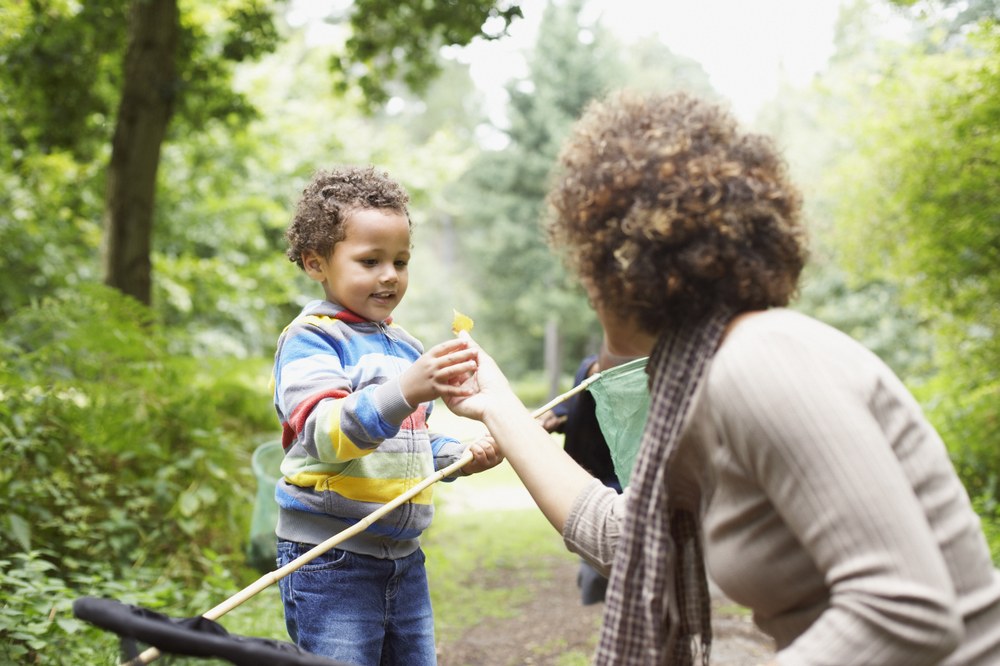Posted: October 17, 2022
Facilitators' words are powerful models for children.

A young child exploring a leaf.
Consider this exchange between a child and an adult:
Child: Where does wind come from?
Adult: I wonder.
By saying, "I wonder," the adult is modeling a sense of curiosity.
Child: I saw this leaf blow from over there. . .
Adult: Tell me more.
When an adult says, "Tell me more," she is indirectly saying, "I think your ideas or observations are wonderful, keep on having them!"
Jay Silver, founder/CEO of JoyLabs/Makey Makey, puts it like this: "If a kid comes to you with a question, to assume that you have the answer is to assume that life is really simple. But it's not true. If a little kid comes to you and asks you, 'Why is the sky blue,' you may know something about scattering of light, you may think you know that it reflects off the ocean, but all of that doesn't matter. The point is, it's about the process of them being curious! So, don't try to give them answers. Try to give them curiosity. So, when someone says, 'Why is the sky blue,' you say, 'I wonder! I wonder why. It's really--it's a really multi-faceted thing. I wonder why.' A person might ask, 'Is this about making a scientist, or is this about making someone who's resourceful and can address problems in multiple ways?' Is there a difference?" (Silver, 2014).
An educator's words have power, and they can inspire youth to think more than they might on their own. If you'd like to inspire youth to think more deeply, check out these lists of thinking questions and prompts. Facilitators' words have power to encourage and guide (PDF)
As one child describes a finding and offers an explanation, another child can listen and respond, offering ideas which may help the original investigator to think more deeply about the results and reasons and form a clearer, more detailed explanation.
Reference
Silver, J. (2014). Trees of Knowledge. Blog. Edutopia.

